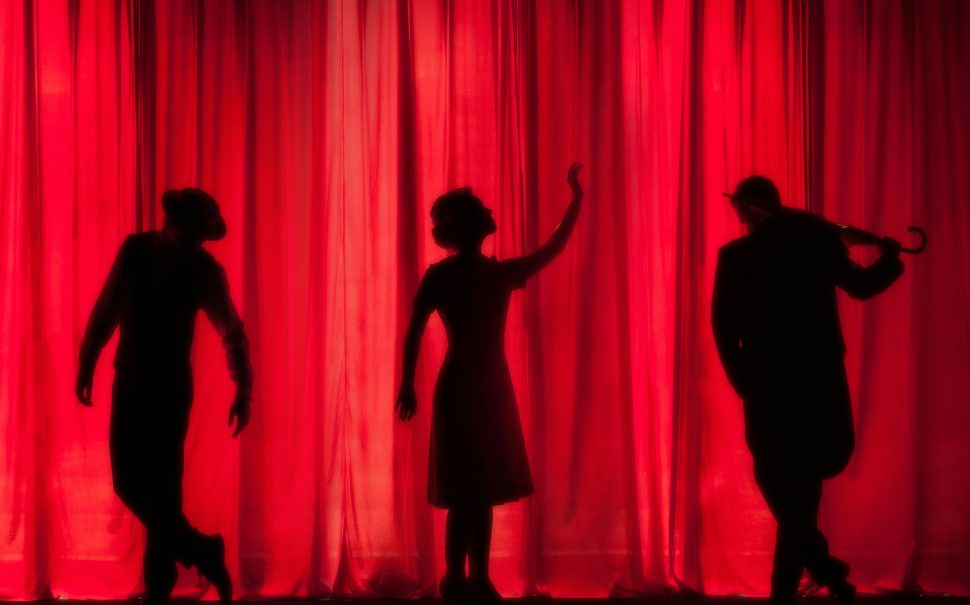
Could universal basic income benefit British artists?
10 July 2024
Maya Mehrara
Follow @SW_Londoner
British artists suffer amidst the cost-of-living crisis with no income support from the government, while Irish artists thrive under a basic income pilot scheme.
Ireland launched the Basic Income for the Arts (BIA) pilot scheme in 2022, where they selected 2,000 artists and creative workers from a pool of applicants to support with payments of €325 per week for three years, until 2025.
While the BIA scheme has already yielded positive results, what are British arts and creative workers doing to survive without similar support from the government?
Artist and founding member of Artists’ Union England Katriona Beales said: “Artists have to juggle multiple jobs within or outside the arts sector to earn enough to survive, and also somehow try and sustain some kind of artist practice.
“The sector is really failing as a whole to support artist practices.”
Beales said she and two other artists founded the Artists’ Union England in response to artist budget cuts.
Beales said: “There’s a systemic issue where the arts are undervalued and have been effectively decimated over the last 14 years by the Tory government.”
She added: “We’re impoverishing ourselves with the way that we’ve been underfunding the arts as a society.”
As a result of low pay and low funds, Beales said: “Artists are leaving the sector.
“Artists aren’t being artists any more. They’re also leaving the country.”
Beales added: “A core motivation for us in terms of our work around the precarious working conditions and pandemic low pay as artists is that it’s a key driver of the lack of representation, diversity, and inequality across the sector.
“If you come from one of the underrepresented equality strands, you’re facing intersecting challenges already, so, of course, we’re ending up with a sector where it’s becoming increasingly a kind of elitist occupation to be a creative person.”
Based on the recommendation of the Arts and Culture Recovery Taskforce following the Life Worth Living report (2020), the pilot scheme was launched by Taoiseach Micheál Martin, Tánaiste Leo Varadkar, and the Minister for Tourism, Culture, Arts, Gaeltacht, Sport and Media.
The BIA, aimed at reviving the arts and culture sector in Ireland following the COVID-19 pandemic, has already shown a strong positive impact on recipients, as survey respondents said they were more likely to sustain themselves through arts work alone and experienced a decrease in anxiety and depression.
Lancaster City Councillor Jack Lenox is also the National Culture Spokesperson and was the Green Party’s parliamentary candidate for Lancaster & Wyre at the recent general election.
Lenox said: “I’ve been a huge fan of universal basic income for quite a few years now, so the various different applications of it are part of what excites me.
“The cultural sector and the arts – we think it’s a really important part of a healthy society, it’s a huge part of sort of community wellbeing.”
He added: “We want to see funding for the cultural sector restored to pre-2010 levels, and as you might have seen, we’ve pledged to invest an extra five billion pounds over the next five years for local government spending on arts and culture, so that’s the fund keeping local theatres open and thriving.
“I feel that a scandal that’s not gone well reported is those local government cuts and what that’s meant for arts at the grassroots level.”
New studies conducted by the Autonomy Institute and commissioned by Equity, a performing arts and entertainment trade union, have revealed that arts funding in the UK has dropped 16% since 2017, decreasing by 11% in England alone.
Equity has launched a Save the Arts campaign for the upcoming general election to address this staggering decrease in funding, with artists like Imelda Staunton and Olivia Colman supporting the call for political action to support the arts.
Equity’s demands to “stop the cuts and save the arts” include increasing arts and entertainment funding to 0.5% of the GDP, eradicating the legal exemption allowing casting directors to charge artists, implementing reform universal credit, and more.
Equity Policy Officer Tom Peters said: “I think that there’s some promising early evidence there.
“I think that the question really for us as a trade union is what’s the best way to deliver an equitable and decent living for our members.”
He added: “I guess the question still hangs over the basic income for us is: is this the best route to deliver that, given the expense involved? Or might this be one of a series of different options, all of which we need to look at?”
Peters noted that as a trade union of 50,000, Equity is the largest performing arts and entertainment union in the UK, and aims to ensure that members get the greatest possible share of the wealth that they create in the industry.
Arts and creative industries generated £36.6 billion in gross value added to the UK’s economy in 2022, according to parliament estimates.
Creative industries make up approximately 6% of GDP, according to Equity’s estimates.
Feature image credit: Silhouette of three performers on stage, Kyle Head, Unsplash
No comments:
Post a Comment